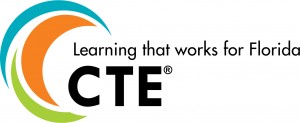Note: NASDCTEc is introducing a new blog series called, “Getting to Know …†We will be using this series to help our readers learn more about specific states, State CTE Directors, our partners and more.
State CTE Director: Rod Duckworth, Chancellor, Division of Career & Adult Education, Florida Department of Education
Postsecondary Counterpart: Chancellor of the Florida College System
About Florida CTE: Florida uses 17 Career Clusters — the original 16 Career Clusters® as well as one for energy. The Career Cluster with the highest enrollment is business management and administration. The state has 67 counties, each with its own school district. In addition, there are two university lab schools, the Florida School for the Deaf and Blind, and the Florida Virtual School, which also offer secondary Career and Technical Education (CTE) programs.
About the State CTE Office: Mr. Duckworth’s office is responsible for the administration of CTE (secondary and postsecondary clock-hour certificate), adult education, apprenticeship, the farmworker career development program, among others. The Division of Career & Adult Education is responsible for distributing the roughly $61 million in federal funding from the Carl D. Perkins Career and Technical Education Act (Perkins).  In addition, the office is responsible for state funding of more than $200 million for district postsecondary CTE programs.
Programs of Study (POS): In Florida, POS are primarily delivered through the state’s career academies, a structure codified in the 2007 law, the Florida Career and Professional Education Act (CAPE). Florida has leveraged its Perkins State Plan to develop additional requirements, which must be met by eligible secondary and postsecondary recipients. Those requirements include the following:
- A written articulation agreement for each Program of Study (POS).
- Articulation agreements signed and approved by the agency head of each participating secondary and postsecondary entity.
- Must include a locally endorsed sequence of core academic and CTE courses (Grade 9 through postsecondary).
- Must lead to a postsecondary credential, which may include a certificate, diploma, associate or baccalaureate degree, an industry certification, or a licensure.
- Each POS is expected to be guided by the workforce and economic development needs of business/industry, the community and employment opportunities for students.
Every secondary and postsecondary recipient of Perkins funds offers at least one CTE POS and documents that through the annual Perkins application process.
 Issue in Focus: Industry-recognized credentials (IRCs) have long been an area of focus for Florida, due in part to the CAPE Act, which created statewide planning partnerships between business and education communities to expand and retain high-value industries and support the state economy. During the 2013-2014 school year, more than 60,000 high school students participating in registered CAPE career academies earned a total of 66,167 IRCs.
In recent years, Florida has put in place a number of incentives to support student attainment of IRCs, including incentives in the K-12 funding model and inclusion in high school and middle school grading formulas. More recently, legislation has addressed counting IRCs in a student’s weighted grade point average and awarding teacher bonuses for certain high-value credentials.
The approval process for IRCs requires that industry certifications for non-farm occupations are recommended by the state’s workforce board (CareerSource Florida), which is comprised of business, industry, and education representatives.
Andrea Zimmermann, State Policy Associate
Tags: Career Clusters®, Florida, industry-recognized credentials, Perkins, programs of study


